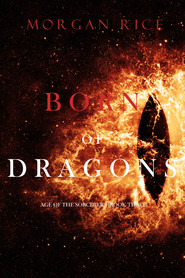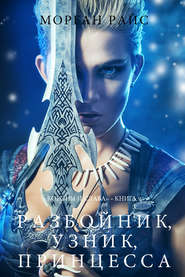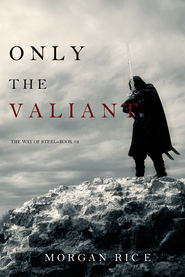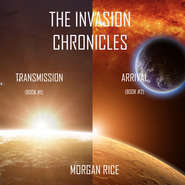По всем вопросам обращайтесь на: info@litportal.ru
(©) 2003-2024.
✖
An Oath of Brothers
Настройки чтения
Размер шрифта
Высота строк
Поля
Godfrey racked his brain.
“We need someone in their army,” he finally said. “A commander. Not too high up. Someone just high enough. Someone who cares more for gold than killing.”
“And where will we find such a person?” Ario asked. “We can’t exactly march into their barracks.”
“In my experience, there’s only one reliable place to find someone of imperfect morals,” Akorth said. “The taverns.”
“Now you’re talking,” Fulton said. “Now, finally, someone is talking sense.”
“That sounds like an awful idea,” Ario retorted. “It sounds like you just want a drink.”
“Well, I do,” Akorth said. “And what’s the shame in that?”
“What do you think?” Ario countered. “That you’re just going to march into a tavern, find a commander, and buy him off? That it’s that easy?”
“Well, the kid is finally right about something,” Merek chimed in. “It’s a bad idea. They’d take one look at our gold, kill us, and take it for themselves.”
“That’s why we’re not bringing our gold,” Godfrey said, deciding.
“Huh?” Merek asked, turning to him. “What are we going to do with it then?”
“Hide it,” Godfrey said.
“Hide all this gold?” Ario asked. “Are you mad? We brought too much as it is. It’s enough to buy half the city.”
“That’s precisely why we are going to hide it,” Godfrey said, warming to the idea. “We find the right person, for the right price, that we can trust, and we’ll lead him to it.”
Merek shrugged.
“This is a fool’s errand. It’s going from bad to worse. We followed you in, God knows why. You’re walking us to our graves.”
“You followed me in because you believe in honor, in courage,” Godfrey said. “You followed me in because, from the moment you did, we became brothers. Brothers in valor. And brothers do not abandon one another.”
The others fell silent as they walked, and Godfrey was surprised at himself. He did not fully understand this streak of himself that surfaced every now and again. Was it his father talking? Or he?
They turned a corner, and the city opened up, and Godfrey was overwhelmed once again by the beauty of it. Everything shining, streets lined with gold, interlaced with canals of sea water, light everywhere, reflecting off the gold, blinding him. The streets were bustling here, too, and Godfrey took in the thick throngs, amazed. His shoulder got bumped more than once, and he took care to keep his head lowered so that the Empire soldiers would not detect him.
Soldiers, in all manner of armor, marched to and fro in every direction, interspersed with Empire nobles and citizens, huge men with the identifiable yellow skin and small horns, many with stands, selling wares up and down the streets of Volusia. Godfrey spotted Empire women, too, for the first time, as tall as the men and as broad-shouldered, looking nearly as big as some of the men back in the Ring. Their horns were longer, pointier, and they glistened an aqua blue. They looked more savage than the men. Godfrey wouldn’t want to find himself in a fight with any of them.
“Maybe we can bed some of the women while we’re here,” Akorth said with a belch.
“I think they would just as happily cut your throat,” Fulton said.
Akorth shrugged.
“Maybe they’d do both,” he said. “At least I’d die a happy man.”
As the throngs grew thicker, pushing their way through more city streets, Godfrey, sweating, trembling with anxiety, forced himself to be strong, to be brave, to think of all those back in the village, of his sister, who needed their help. He considered the numbers they were up against. If he could pull off this mission, perhaps he could make a difference, perhaps he could truly help them. It wasn’t the bold, glorious way of his warrior brothers; but it was his way, and the only way he knew.
As they turned a corner, Godfrey looked up ahead and saw exactly what he was looking for: there, in the distance, a group of men came spilling out of a stone building, wrestling with each other, a crowd forming around them, cheering. They threw punches and stumbled in a way which Godfrey immediately recognized: drunk. Drunks, he mused, looked the same anywhere in the world. It was a fraternity of fools. He spotted a small black banner flying over the establishment, and he knew at once what it was.
“There,” Godfrey said, as if looking at a holy mecca. “That’s what we want.”
“The cleanest-looking tavern I’ve ever seen,” Akorth said.
Godfrey noticed the elegant façade, and he was inclined to agree with him.
Merek shrugged.
“All taverns are the same, once you’re inside. They’ll be as drunk and stupid here as they would be in any place.”
“My kind of people,” Fulton said, licking his lips as if already tasting the ale.
“And just how are we supposed to get there?” Ario asked.
Godfrey looked down and saw what he was referring to: the street ended in a canal. There was no way to walk there.
Godfrey watched as a small golden vessel pull up at their feet, two Empire men inside, and watched them jump out, tie the boat to a post with a rope, and leave it there as they walked into the city, never looking back. Godfrey spotted the armor on one of them and figured they were officers, and had no need to worry about their boat. They knew, clearly, that no one would ever be so foolish as to dare steal their boat from them.
Godfrey and Merek exchanged a knowing look at the same moment. Great minds, Godfrey realized, thought alike; or at least great minds who had both seen their share of dungeons and back alleys.
Merek stepped forward, removed his dagger, and sliced the thick rope, and one at a time, they all piled into the small golden vessel, which rocked wildly as they did. Godfrey leaned back and with his boot shoved them off from the dock.
They glided down the waterways, rocking, and Merek grabbed the long oar and steered, rowing.
“This is madness,” Ario said, glancing back for the officers. “They might come back.”
Godfrey looked straight ahead and nodded.
“Then we better row faster,” he said.
Chapter Nine
Volusia stood in the midst of the endless desert, its green floor cracked and parched, hard as stone beneath her feet, and she stared straight ahead, facing off with the entourage from Dansk. She stood there proudly, a dozen of her closest advisors behind her, and faced off against two dozen of their men, typical Empire, tall, broad-shouldered, with the glowing yellow skin, the glistening red eyes and two small horns. The only noticeable difference of this people of Dansk was that, over time, they grew their horns out to the side instead of straight up.
Volusia looked out over their shoulders, and saw sitting on the horizon the desert city of Dansk, tall, supremely imposing, rising a hundred feet into the sky, its green walls the color of the desert, made of stone or brick – she could not tell which. The city was shaped in a perfect circle, parapets at the top of the wall, and between them, soldiers stationed every ten feet, facing every station, keeping watch, eyeing every corner of desert. It looked impenetrable.
Dansk lay directly south of Maltolis, halfway between the mad Prince’s city and the southern capital, and it was a stronghold, a pivotal crossroads. Volusia had heard about it many times from her mother, but had never visited herself. She had always said that no one could take the Empire without taking Dansk.
Volusia looked back at their leader, standing before her with his envoy, smug, smirking down at her arrogantly. He looked different than the others, clearly their leader, with an air of confidence, more scars on his face, and with two long braids that descended from his head to his waist.
They had been standing this way in the silence, each waiting for the other to speak, no sound but that of the howling wind in the desert.
Finally, he must have tired of waiting, and he spoke:
“So you wish to enter our city?” he asked her. “You and your men?”
Volusia stared back, proud, confident, and expressionless.
“We need someone in their army,” he finally said. “A commander. Not too high up. Someone just high enough. Someone who cares more for gold than killing.”
“And where will we find such a person?” Ario asked. “We can’t exactly march into their barracks.”
“In my experience, there’s only one reliable place to find someone of imperfect morals,” Akorth said. “The taverns.”
“Now you’re talking,” Fulton said. “Now, finally, someone is talking sense.”
“That sounds like an awful idea,” Ario retorted. “It sounds like you just want a drink.”
“Well, I do,” Akorth said. “And what’s the shame in that?”
“What do you think?” Ario countered. “That you’re just going to march into a tavern, find a commander, and buy him off? That it’s that easy?”
“Well, the kid is finally right about something,” Merek chimed in. “It’s a bad idea. They’d take one look at our gold, kill us, and take it for themselves.”
“That’s why we’re not bringing our gold,” Godfrey said, deciding.
“Huh?” Merek asked, turning to him. “What are we going to do with it then?”
“Hide it,” Godfrey said.
“Hide all this gold?” Ario asked. “Are you mad? We brought too much as it is. It’s enough to buy half the city.”
“That’s precisely why we are going to hide it,” Godfrey said, warming to the idea. “We find the right person, for the right price, that we can trust, and we’ll lead him to it.”
Merek shrugged.
“This is a fool’s errand. It’s going from bad to worse. We followed you in, God knows why. You’re walking us to our graves.”
“You followed me in because you believe in honor, in courage,” Godfrey said. “You followed me in because, from the moment you did, we became brothers. Brothers in valor. And brothers do not abandon one another.”
The others fell silent as they walked, and Godfrey was surprised at himself. He did not fully understand this streak of himself that surfaced every now and again. Was it his father talking? Or he?
They turned a corner, and the city opened up, and Godfrey was overwhelmed once again by the beauty of it. Everything shining, streets lined with gold, interlaced with canals of sea water, light everywhere, reflecting off the gold, blinding him. The streets were bustling here, too, and Godfrey took in the thick throngs, amazed. His shoulder got bumped more than once, and he took care to keep his head lowered so that the Empire soldiers would not detect him.
Soldiers, in all manner of armor, marched to and fro in every direction, interspersed with Empire nobles and citizens, huge men with the identifiable yellow skin and small horns, many with stands, selling wares up and down the streets of Volusia. Godfrey spotted Empire women, too, for the first time, as tall as the men and as broad-shouldered, looking nearly as big as some of the men back in the Ring. Their horns were longer, pointier, and they glistened an aqua blue. They looked more savage than the men. Godfrey wouldn’t want to find himself in a fight with any of them.
“Maybe we can bed some of the women while we’re here,” Akorth said with a belch.
“I think they would just as happily cut your throat,” Fulton said.
Akorth shrugged.
“Maybe they’d do both,” he said. “At least I’d die a happy man.”
As the throngs grew thicker, pushing their way through more city streets, Godfrey, sweating, trembling with anxiety, forced himself to be strong, to be brave, to think of all those back in the village, of his sister, who needed their help. He considered the numbers they were up against. If he could pull off this mission, perhaps he could make a difference, perhaps he could truly help them. It wasn’t the bold, glorious way of his warrior brothers; but it was his way, and the only way he knew.
As they turned a corner, Godfrey looked up ahead and saw exactly what he was looking for: there, in the distance, a group of men came spilling out of a stone building, wrestling with each other, a crowd forming around them, cheering. They threw punches and stumbled in a way which Godfrey immediately recognized: drunk. Drunks, he mused, looked the same anywhere in the world. It was a fraternity of fools. He spotted a small black banner flying over the establishment, and he knew at once what it was.
“There,” Godfrey said, as if looking at a holy mecca. “That’s what we want.”
“The cleanest-looking tavern I’ve ever seen,” Akorth said.
Godfrey noticed the elegant façade, and he was inclined to agree with him.
Merek shrugged.
“All taverns are the same, once you’re inside. They’ll be as drunk and stupid here as they would be in any place.”
“My kind of people,” Fulton said, licking his lips as if already tasting the ale.
“And just how are we supposed to get there?” Ario asked.
Godfrey looked down and saw what he was referring to: the street ended in a canal. There was no way to walk there.
Godfrey watched as a small golden vessel pull up at their feet, two Empire men inside, and watched them jump out, tie the boat to a post with a rope, and leave it there as they walked into the city, never looking back. Godfrey spotted the armor on one of them and figured they were officers, and had no need to worry about their boat. They knew, clearly, that no one would ever be so foolish as to dare steal their boat from them.
Godfrey and Merek exchanged a knowing look at the same moment. Great minds, Godfrey realized, thought alike; or at least great minds who had both seen their share of dungeons and back alleys.
Merek stepped forward, removed his dagger, and sliced the thick rope, and one at a time, they all piled into the small golden vessel, which rocked wildly as they did. Godfrey leaned back and with his boot shoved them off from the dock.
They glided down the waterways, rocking, and Merek grabbed the long oar and steered, rowing.
“This is madness,” Ario said, glancing back for the officers. “They might come back.”
Godfrey looked straight ahead and nodded.
“Then we better row faster,” he said.
Chapter Nine
Volusia stood in the midst of the endless desert, its green floor cracked and parched, hard as stone beneath her feet, and she stared straight ahead, facing off with the entourage from Dansk. She stood there proudly, a dozen of her closest advisors behind her, and faced off against two dozen of their men, typical Empire, tall, broad-shouldered, with the glowing yellow skin, the glistening red eyes and two small horns. The only noticeable difference of this people of Dansk was that, over time, they grew their horns out to the side instead of straight up.
Volusia looked out over their shoulders, and saw sitting on the horizon the desert city of Dansk, tall, supremely imposing, rising a hundred feet into the sky, its green walls the color of the desert, made of stone or brick – she could not tell which. The city was shaped in a perfect circle, parapets at the top of the wall, and between them, soldiers stationed every ten feet, facing every station, keeping watch, eyeing every corner of desert. It looked impenetrable.
Dansk lay directly south of Maltolis, halfway between the mad Prince’s city and the southern capital, and it was a stronghold, a pivotal crossroads. Volusia had heard about it many times from her mother, but had never visited herself. She had always said that no one could take the Empire without taking Dansk.
Volusia looked back at their leader, standing before her with his envoy, smug, smirking down at her arrogantly. He looked different than the others, clearly their leader, with an air of confidence, more scars on his face, and with two long braids that descended from his head to his waist.
They had been standing this way in the silence, each waiting for the other to speak, no sound but that of the howling wind in the desert.
Finally, he must have tired of waiting, and he spoke:
“So you wish to enter our city?” he asked her. “You and your men?”
Volusia stared back, proud, confident, and expressionless.

















